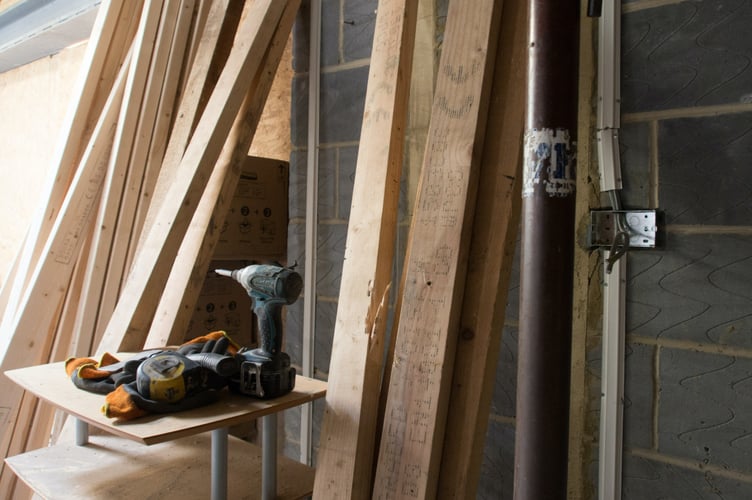With house prices rising, many Welsh homeowners may decide to upgrade their current property rather than move.
Upgrading can mean anything from redecorating to getting an extension built, and with the average price for home upgrades in 2022 sitting at £76,900 for a three-bed house, this can be costly.
However, there are several ways to budget for a home extension and save money throughout the process, including careful planning, taking on some DIY jobs, and applying for specific loans.
#1 - Consider the 10% to 15% rule.
When deciding the budget for your home extension, make sure you limit the cap of your budget to just 10% or 15% for a single room. For example, if your home is worth £214,000, then your budget for a kitchen extension should be around £21,400 to £32,100.
#2 - Know your limitations
According to GOV Wales, there are varying limitations on home extensions. For instance, an extension within two metres of the boundary of your home cannot exceed four metres in height.
Knowing the rules before you hire contractors means that you will reduce your risk of incurring penalties, as well as reducing the cost of work needed from contractors.
#3 - Plan out everything
From setting the goal of your home renovation to the detailed plan of every individual cost, you need to create a budget plan to cover all the necessary features and costs of your extension. This includes the appliances you want to buy for your kitchen’s extension, fixtures and fittings, room decoration and equipment. This will ensure an easier outline for your home extension plan.
#4 - Outline any DIY work you can take away from the total cost
DIY work such as the demolition, painting, fixtures and other elements that you can do yourself will massively decrease the total cost of your budget, as the services provided by professionals can often cost hundreds of pounds. So, identify what you can do yourself and take these costs away from your total budget estimate.

#5 - Explore your options with different contractors
Different contractors can offer different prices, benefits and features for your new home extension, so don’t be afraid to explore offers from various contractors in your local area. Rushing the process can mean that you might miss out on a potentially lower offer for a great home extension plan.
#6 - Apply for a home improvement loan
Home improvement loans or grants are available across Wales and can be useful when you want to pay for damages done during home extensions. Interest-free loans can go up to around £30,000 and are available for households that are considered eligible.
This can help considerably post-upgrades when your home is finished with a conversion or extension, and there are repairs or maintenance that require attention.
#7 - Look for non-branded appliances
This tip is more for post-extension plans. If you’re choosing to replace some appliances with new items, consider non-branded purchases. These items - such as Wilkinsons and IKEA - tend to be cheaper, but with the same efficiency as bigger brands.
#8 - Consider an energy-efficient heating system
An energy-efficient heating system can help you save money year-on-year, and is more of a long-term investment. This is ideal for those that want to get their money back sooner after a huge extension process.
#9 - Take your time with your plan and stick with it
A home extension plan shouldn’t happen overnight. Planning the smallest bits of detail can save you money, which can limit the cost of an extension further into the future. The reason why you should take your time with your plan is to ensure that you stick with the designs you have in mind. Any alterations or snap decisions you make in later stages will likely have additional costs.
#10 - Comply with building regulations
Ensure that you’re complying with the official building regulations to avoid any potential, additional costs that can land on your lap if you ignore any rules pertaining to building regulations.

Specialists FC Extensions, who have created a design and planning cost calculator for home extension projects, gave their advice on budgeting and cost-cutting: “Budgeting for a home upgrade means considering specific, varied factors that can affect the end cost of your desired home plan.
“These features will mostly depend on what room you want to extend, if there are any systems you want to change, the size of the room you want to convert or how much you’re willing to spend.
“The price average for home extensions is usually around £30,000 to £40,000, so ideally, it would be safer to save up to this amount to get a flexible deal on your home extension plan.”





Comments
This article has no comments yet. Be the first to leave a comment.